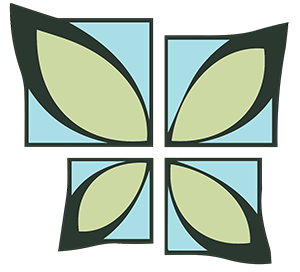Speech & Language
Therapy
The field of Speech-Language Pathology focuses on many more modalities than just speech. The two main domains that fall within the scope of practice are communication and swallowing including speech production, fluency, language, cognition, voice, resonance, feeding, swallowing, hearing and speech therapy for adults, children and infants.
The main goal of a speech therapy service is to improve ones ability to communicate and/or swallow effectively to reduce frustrations and enhance quality of life.
Speech-Language Pathologists (SLPs) provide services to individuals with a wide variety of speech, language, and swallowing differences and disorders within eight service delivery domains that range in function from completely intact to completely compromised.
The eight service delivery domains include:
Collaboration
Counseling
Prevention and Wellness
Screening
Assessment
Treatment
Modalities, Technology, and Instrumentation
Population and Systems
Speech-Language Pathology is a dynamic profession, and the scope of our practice frequently overlaps, especially in today’s society where health care, education, and other environments are consistently evolving. Therefore, SLPs in various settings work collaboratively with other school or health care professionals to make sound decisions for the benefit of individuals with communication and swallowing disorders.
Metro Physical & Aquatic Therapy offers speech and language therapy in several locations across Long Island. Schedule an in-home or in-office treatment today.
Pre-school Children:
There are many things that parents witness on a day to to day basis that may raise concern in regards to development of speech/language and feeding milestones in the first few years of life. If you have ever found yourself wondering if your child could benefit from seeing an SLP, it never hurts to inquire about a phone consultation or an evaluation. ASHA (American Speech-Language and Hearing Association) reports there may be cause for concern if your child is not speaking by his/her first birthday and/or their speech is unclear.
Please visit the link below to find more information regarding milestones for speech, language and hearing development in children birth-5 years old.
https://www.asha.org/public/speech/development/chart/
SChool Age Children:
As children develop and progress in school, the coursework naturally becomes more challenging. During these times, we sometimes see exceptional struggle in certain areas and some children may begin to fall behind their peers. It is important to analyze their environment to decipher if certain behaviors are possibly due to a delay or disorder that may be targeted and improved in speech therapy.
Targeted areas include:
Articulation Disorder
Central Auditory Processing Disorder
Executive Functioning Disorder
Expressive or Receptive Language Disorder or Delay
Oral Motor
Stuttering (fluency)
Literacy
Pragmatic/Social Language
For more information on the development of speech & language, and the importance of speech therapy for kids, please visit:
https://www.asha.org/public/speech/development/language_speech/
Cognitive Function and Adult Language Disorders (Aphasia):
Cognitive Disorders include deficits in awareness, reasoning, memory, perception and judgment. Cognitive decline may results from an acute event (e.g., stroke, TBI), neurological condition (e.g., Alzheimer’s, Dementia, MS, Parkinson’s) or simply from natural aging.
According to ASHA, Aphasia is defined as an acquired neurogenic language disorder resulting from an injury to the brain—most typically, the left hemisphere. Aphasia involves varying degrees of impairment in four primary areas: Spoken language expression, Spoken language comprehension, and Written expression. Individuals with Aphasia can experience severe frustration when attempting to communicate resulting in a significant decrease in quality of life for both the individual and their caretakers.
Some common signs of cognitive and/or language disorders are:
Difficulty communicating or expressing yourself
Difficulty finding words or words getting stuck
Memory loss
Difficulty with executive functioning (planning, organizing, prioritizing, problem solving)
Poor attention to task or awareness to surroundings
Impairments in understanding written or spoken speech
Difficulty understanding spoken speech of increasing length and complexity
For more information of Aphasia please visit:
https://www.asha.org/practice-portal/clinical-topics/aphasia/
Swallowing (Dysphagia) & Feeding:
Many people don’t know that the scope of Speech-Language Pathology has a huge swallowing component. Both children and adults can experience difficulty with feeding or swallowing that may be caused by developmental delays, neurological conditions, head/neck cancer/injury or simply natural aging. There are various types of subjective and objective tests to assess swallow function and airway protection ability which can help develop treatment plans using evidence based practice.
Some common signs of swallowing disorders are:
Trouble swallowing solids or liquids
Frequent pneumonia
Coughing or throat clearing during of after meals
Self-conscious or embarrassed to eat in public
Food/liquid leaking from your lips
Weight loss
Wet/gurgle vocal quality when eating or drinking
For more information on Dysphagia please visit:
https://www.asha.org/public/speech/swallowing/
Speech and Voice Disorders:
Voice Disorders are defined as differences in loudness, pitch, or quality of voice affecting one’s ability to communicate.
Speech Disorders including both fluency (stuttering) and Dysarthria can also be targeted in Speech-Language Therapy to improve ability to communicate resulting in overall improved quality of life.
Some signs of speech and voice disorders include:
Slurred speech
Hoarse or raspy voice
Soft/low speech
Frequently “losing” voice
For more information on voice disorders please visit:
https://www.asha.org/Practice-Portal/Clinical-Topics/Voice-Disorders/
LSVT LOUD for Parkinsons
LSVT LOUD is an evidenced based speech & voice treatment program created by Dr. Lorraine Ramig for people living with Parkinson’s Disease and other neurological conditions. LSVT has been scientifically studied and seen to effectively train people with PD to use their voice with a habitual loudness while speaking with familiar and unfamiliar partners in various settings ranging from quiet conversation to more demanding events. The main goal of the program is to “recalibrate” the voice through a series of exercises to a loudness level that is appropriate to achieve effective, easy and functional communication.
https://www.lsvtglobal.com/LSVTLoud#treatmentExplainedSection
For more information on the scope of practice in a speech pathology service, please visit:

